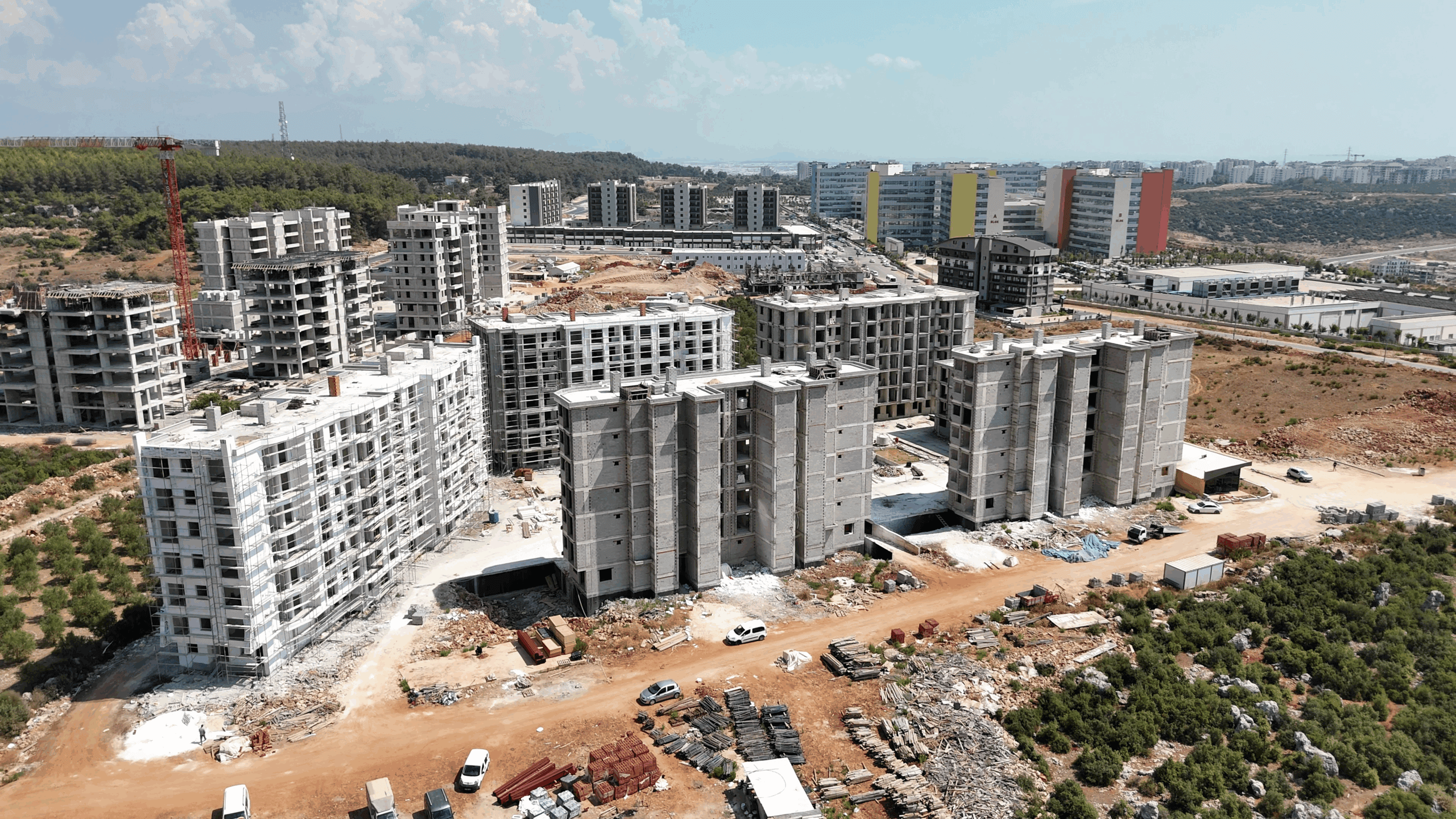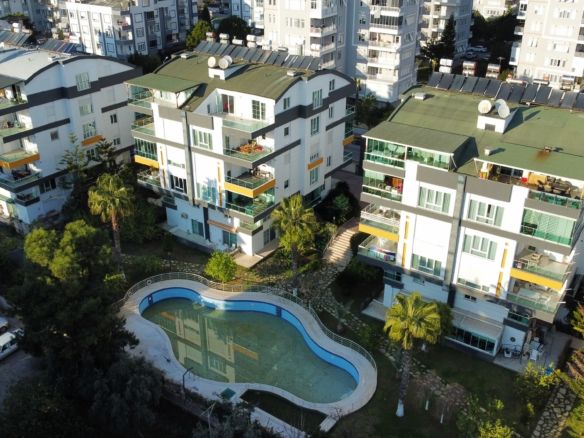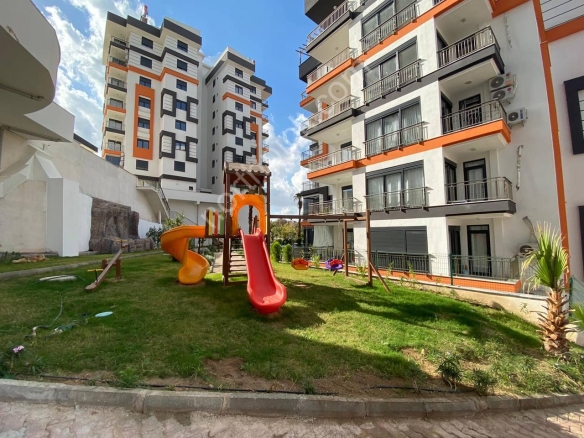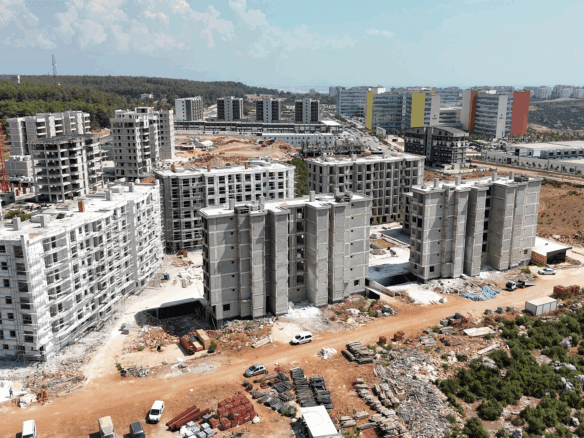The Turkish real estate market in 2025 presents a fascinating and evolving landscape for high-net-worth individuals. Understanding the nuances of Turkey house sales is more crucial than ever, as the motivations and behaviors of local and international buyers are diverging significantly. While a staggering 978,070 properties were sold between January and August 2025, the story behind that number reveals two distinct investor profiles shaping the market’s future.
Are you looking to make a strategic investment? It’s essential to grasp who is buying, what they’re buying, and why. Let’s explore the five critical differences that define today’s Turkish property market.

The Foreign Investor Profile: Shifting Priorities
The data reveals a clear shift among foreign property buyers in Turkey. After a peak in 2022, where international sales reached 67,490 units (4.5% of the total market), the numbers have recalibrated. In the first eight months of 2025, foreign buyers accounted for 13,077 sales, or 1.3% of the market. This isn’t a sign of a weakening market but rather a consolidation, creating a more discerning and opportunity-rich environment for serious investors.
The primary drivers for this group remain consistent:
- Citizenship by Investment: Acquiring a Turkish passport continues to be a powerful motivator. A strategic property purchase serves as a gateway to global mobility, and Northpick specializes in identifying prime properties eligible for citizenship.
- Lifestyle & High ROI: Coastal regions, particularly Antalya, offer an unparalleled Mediterranean lifestyle combined with strong rental yields and capital appreciation potential.
- Portfolio Diversification: Turkey’s unique geopolitical and economic position offers a valuable opportunity for HNW individuals to diversify their assets away from traditional markets.
The chart below illustrates the recent trend in property sales to foreigners, providing a clear picture of the market’s evolution.
The Domestic Buyer Profile: Cash is King
While foreign buyers capture headlines, the domestic market is the true engine of Turkish real estate, accounting for over 98% of transactions. The most striking characteristic of this group is its low reliance on debt. In 2025, a mere 14.4% of all sales were financed through mortgages, according to official data from the Turkish Statistical Institute (TUIK).
This points to a robust, cash-heavy market driven by several factors:
- Inflation Hedging: Sophisticated local investors use real estate as a reliable store of value against inflation.
- Primary & Second Homes: Urban professionals and families continue to drive demand in major cities and coastal vacation spots.
- Preference for Resale: The second-hand market is dominant, representing nearly 70% of all sales. This market offers immediate availability and often, more competitive pricing.
Economic Factors: Different Worlds, Different Impacts
A comprehensive Turkish real estate market analysis reveals how economic conditions affect each buyer group differently.
Domestic buyers are highly sensitive to local interest rate policies set by the Central Bank of the Republic of Turkey. Higher rates can temper demand for new builds and mortgages, pushing more activity towards the cash-driven resale market.
Conversely, foreign investors are more influenced by global currency fluctuations. A strong US Dollar or Euro can significantly increase their purchasing power, making Turkish luxury properties exceptionally valuable. This creates unique windows of opportunity for those ready to act.
Regional Hotspots: A Tale of Two Maps
Where are these groups buying? The data shows a clear divergence in regional preferences. While Istanbul remains a powerful hub for both, the priorities of each group lead them to different secondary cities. The table below compares the top 5 provinces for total sales versus sales to foreigners in the first eight months of 2025.
| Rank | Top 5 Provinces (Total Sales) | Top 5 Provinces (Foreign Buyer Sales) |
|---|---|---|
| 1 | Istanbul (161,449 units) | Istanbul (4,797 units) |
| 2 | Ankara (88,354 units) | Antalya (4,380 units) |
| 3 | Izmir (57,374 units) | Mersin (1,036 units) |
| 4 | Antalya (51,812 units) | Ankara (463 units) |
| 5 | Mersin (34,421 units) | Yalova (309 units) |
Your Investment Strategy: Aligning with the Market
So, what do these differences mean for your investment strategy?
- For Citizenship Seekers: The recalibration in foreign buyer numbers means less competition for prime, citizenship-eligible properties. Your focus should be on top-tier units in Istanbul and Antalya that meet the program’s requirements and offer strong long-term value.
- For Lifestyle & ROI Investors: The data confirms that coastal regions, especially properties in Antalya, are epicenters of foreign demand. This concentration creates a vibrant, liquid market with proven rental demand and a clear path to exit.
The Turkish real estate market isn’t a single entity; it’s a dynamic interplay of diverse buyer motivations. Recognizing whether you’re aligning with a trend driven by local capital preservation or international lifestyle and mobility is the first step toward making a truly strategic and profitable investment. By understanding these key differences, you can navigate the market with confidence and precision.
















